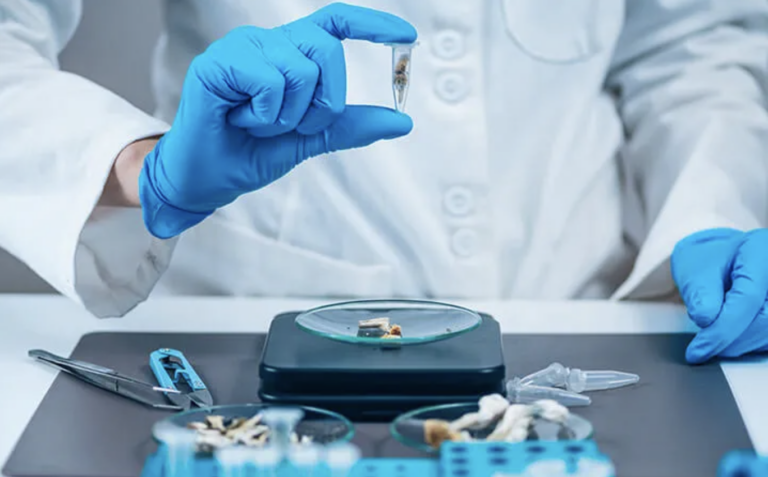Psychedelics 101
- CENALIFE
- CENALIFE
- CENALIFE
- CENALIFE
- CENALIFE
- CENALIFE
- CENALIFE
- CENALIFE
- CENALIFE
From the Beginning
When you hear the word “psychedelics”, what may come to mind is illegal substances, black markets, and the war on drugs. If you’re seeking reassurance that these substances can be safely used under supervision, and may offer renewed hope on your mental health journey, let us shed light on these subjects. We want to empower you with the most up-to-date information, so that you can better understand the practical and powerful qualities of these cutting-edge mental health offerings. To see a complete list of educational resources, click here.

Psychedelics 101
Psychedelics in this context will include psilocybin (found in certain mushrooms), LSD (lysergic acid diethylamide), and MDMA (3,4-methylenedioxy-N-methylamphetamine).
These substances primarily interact with serotonin receptors in the brain, leading to changes in neural activity. Understanding the pharmacological mechanisms and psychological effects is fundamental to navigating the nuanced landscape of psychedelic substances.
While psychedelic substances have a rich history in cultural and spiritual contexts, they have only recently garnered significant attention in from the western medical community, for their potential to heal psychological disease. Psychedelics have the potential to induce altered states of consciousness, leading to unique and profound experiences. Advocates contend that these substances can facilitate introspection, enable emotional release, and enhance individuals’ overall well-being.
Psychedelics, when used responsibly and under proper guidance, offer a unique avenue for exploring the mind and have shown promise in revolutionizing mental health treatment paradigms.
It’s crucial to mention that the use of psychedelics is a complex and evolving area of study, and a dose of healthy caution is advised.
The Supported Process
As part of our pre-screening process, we will carefully assess your medical history, mental health condition, and any potential risks or contraindications. This meticulous screening helps determine whether psychedelics are an appropriate and safe option for you.
Should we determine that one of our unique mental health offerings has the potential to make a difference in your healing journey, we will build out the full schedule and begin treatment.
During the experience, you would be closely monitored by trained individuals who understand the nuances of psychedelic therapy. We provide emotional support, guidance, and ensure a comfortable environment to help mitigate anxiety or fear.
We will be available to you every step of the way, to address any concern or question you have with care and expertise.
Educational Articles & Quotes
General
- Psychedelic Assisted Therapy: Risks, Considerations, Contraindications (verywellmind.com)
- Psychedelic Assisted Therapy Uses a Controlled and Safe Environment.
- What to Know About Guided Psychedelic Therapy in Canada | Best Health (besthealthmag.ca)
- Psychedelic psychotherapy takes a different approach than other forms.
- Psychedelics can bring into your awareness stuff which has been suppressed in your mind.
- Alberta sets standards for psychedelic drug-assisted therapy | Globalnews.ca
- Alberta is leading the way in psychedelic-assisted therapy by making sure Albertans are protected and working on improving access to care.
MDMA
- MDMA-Assisted Therapy Demonstrates Significant Reductions in Post-Traumatic Stress Disorder Symptoms in Phase 3 Study (pharmacytimes.com)
&
FDA Grants Breakthrough Therapy Designation for MDMA-Assisted Therapy for PTSD, Agrees on Special Protocol Assessment for Phase 3 Trials – Multidisciplinary Association for Psychedelic Studies – MAPS
-
- “86.5% who received MDMA-AT had clinically meaningful improvements after 18 weeks compared with 69% in the placebo and therapy group.
-
- “MDMA induces a sense of empathy, euphoria, and reduced fear responses.”
- “MDMA-assisted therapy has been shown to be effective in treating PTSD.”
- “86.5 percent of participants in a recent study experienced a clinically significant benefit.”
- “71.2 percent of participants no longer met criteria for PTSD once the study was over.”
-
- “When you take MDMA, it not only causes a massive release of your own supplies of serotonin, but it also releases dopamine, norepinephrine, cortisol and oxytocin. MDMA quiets the fear-processing centre of the brain, so it reduces fear while keeping the person alert at the same time, which is very conducive to processing trauma.”
Psilocybin
- Many recent studies have shown that psilocybin can rapidly relieve the symptoms of depression, and this relief lasted for several months.
- Many people who experience depression do not find relief through psychotherapy or existing medications.
- A new study found that psilocybin can be highly effective in relieving depression.
- The relative safety and efficacy of psilocybin suggest that it could be a powerful way to treat depression.
- “…two doses of psilocybin and supportive psychotherapy resulted in rapid, significant antidepressant effects.”
- “Around 67% of participants experienced a 50% reduction in symptoms. These effects also appear to be lasting. By four weeks after treatment, 54% of the participants who had psilocybin treatment were no longer depressed.”
- psilocybin treatment in both groups produced large decreases in depression, and that depression severity remained low one, three, six and 12 months after treatment.
Ketamine
- Ketamine-assisted psychotherapy (KAP) utilizes ketamine to help patients struggling to find relief from mental health symptoms.
- Research has explored the potential of psychedelics in psychotherapy for several decades.
- Ketamine’s dissociative and pain-managing processes help individuals safely explore painful emotions and memories.
- By harnessing the potential psychedelic effects of ketamine, the aim is to achieve more sustained results with fewer ketamine treatments compared to IV ketamine infusions without accompanying psychotherapy.